What Is Orzo and How Do You Use It?
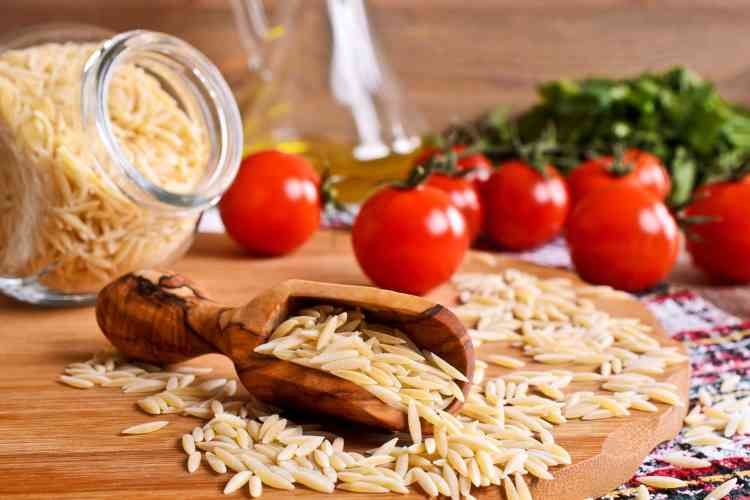
You can discover a staggering number of different types of pasta that are fun to experiment with and orzo is no exception. When you get bored with spaghetti and ziti or bowties and elbows, search a little further on your grocery store shelf. Orzo pasta is easy to find, and it lends itself to many dishes, including cold pasta dishes and soups.
If you’re intrigued about this delicate pasta shape and want to learn more about it, this guide is here to help. Whether you want to know how long to cook orzo and what recipes to use it in or are wondering where it can be purchased, keep reading for everything you need to know about orzo pasta.
- What Is Orzo?
- How To Cook Orzo
- Is Orzo Healthy?
- Is Orzo Gluten-Free?
- Is Orzo Vegan?
- Where To Buy Orzo
- What Is a Good Orzo Substitute?
What Is Orzo?
Orzo is a lesser-known pasta that is worth discovering because it has many advantages over other types of pasta. Orzo is similar in shape and size to rice grains but has a softer, more pasta-like texture than rice. However, cooked orzo feels lighter than most other pasta, making it a great choice for cold summer pasta salads. You can also throw a small handful of dry orzo directly into brothy soups, like Greek lemon chicken soup. If you happen to be traveling in Europe where orzo is more commonly used, you may see it referred to as risoni in Italy and kritharaki in Greece.
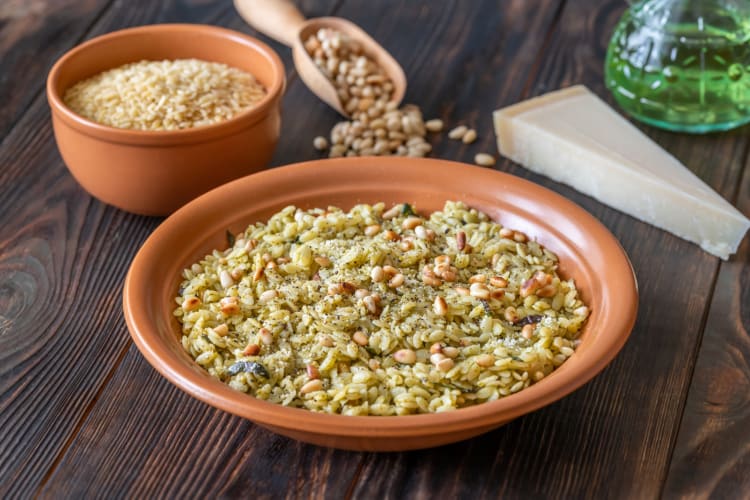
What Does Orzo Look Like?
At first glance, people often confuse orzo pasta for rice because they are similar in shape. But a closer inspection of dried orzo will show you that it has the recognizable smooth texture of pasta. Orzo is about the same length as a grain of rice, but a bit more plump and oblong. Once cooked, it has a toothsome bite similar to rice. Where some kinds of pasta work best one or two pieces at a time (like ziti or egg noodles), orzo pasta is best eaten by the forkful just like you would take a bite of cooked rice.
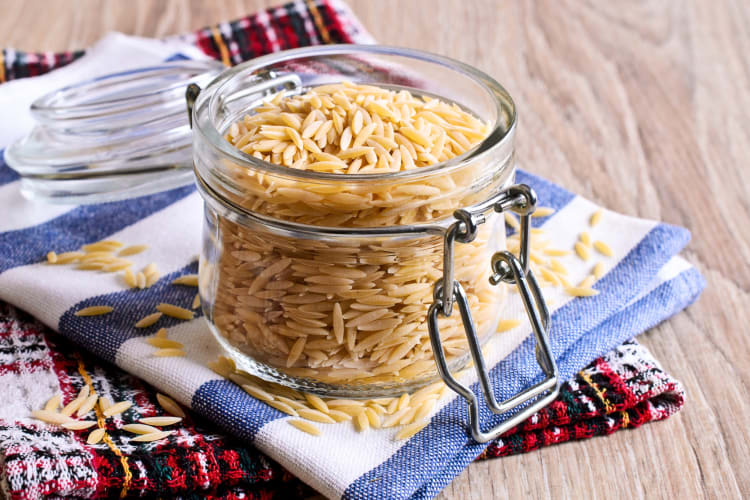
Is Orzo a Rice or Pasta?
Orzo is a type of pasta. While it looks similar to rice, it falls into the pasta family because of the way it is made.
What Is Orzo Made Of?
Orzo is typically made of semolina, which is the flour that gives many kinds of pasta their slightly golden color. Orzo pasta can also be made from whole wheat, whole grain or white flour.

Is Orzo a Whole Grain?
Orzo is made from flours that originate from whole grains, but it is not a grain like rice.
How To Cook Orzo
The good news about orzo pasta is that it is quick cooking. The not-so-good news is that you have to watch it carefully because it can overcook very easily and become mush.
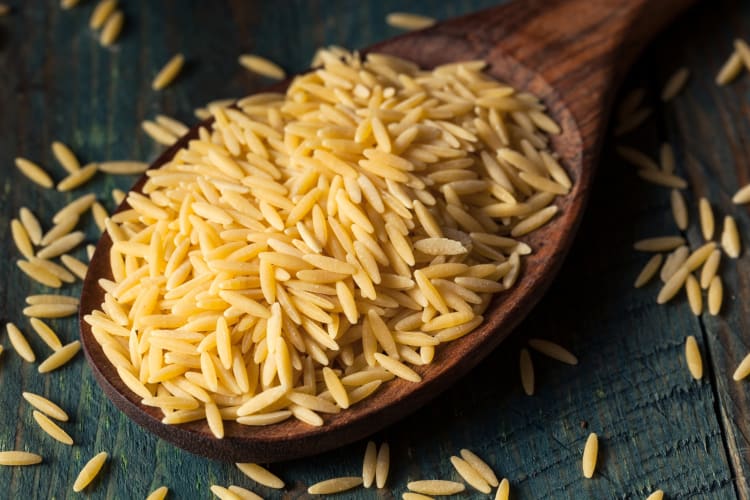
How Long to Cook Orzo
If you are working with white flour or semolina orzo, you’ll want to start checking for doneness at about four minutes. Even though the instruction box will usually tell you eight minutes, that is probably too long, especially if you want your pasta cooked al dente.
Whole wheat or whole grain orzo will be al dente in six to eight minutes, but it’s still a good idea to start checking it at about four minutes into the cooking time. Another thing to keep in mind when cooking orzo pasta is whether you’ll be adding your cooked orzo to a sauce or putting it in a pan to finish the dish. If so, definitely take the orzo out of the boiling water after four minutes since it will continue to cook in the second step of your recipe.
If you’re new to orzo, you’ll want to try it in easy pasta recipes (like lemon orzo) first so that you can get familiar with cooking it as well as with the taste and texture. Cooking classes are always a great way to become more familiar with new ingredients as well, so consider taking cooking classes near you or online cooking classes that feature dishes made with orzo pasta to really get to know how to cook and prepare this pasta shape.
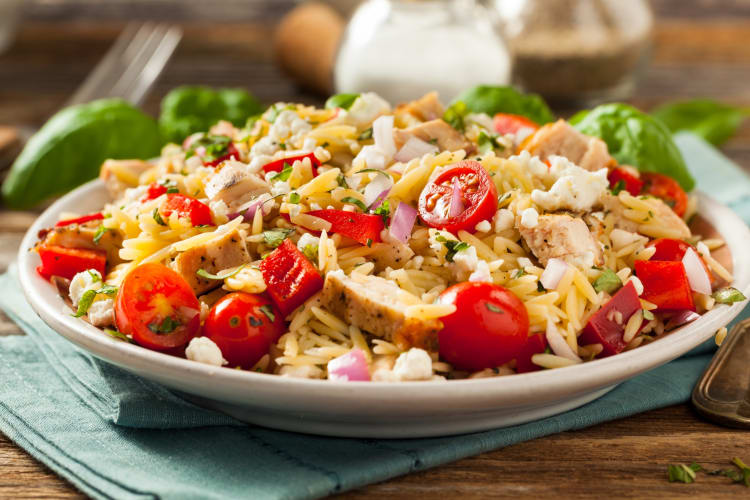
How Much Orzo per Person
A little orzo goes a long way, so plan on half a cup of dry orzo per serving when preparing a recipe.
Is Orzo Healthy?
In terms of nutrition profile, orzo follows a similar pattern to other types of pasta. It’s a good source of protein, fiber and energy-boosting carbohydrates. The glycemic index of orzo is relatively low as well.
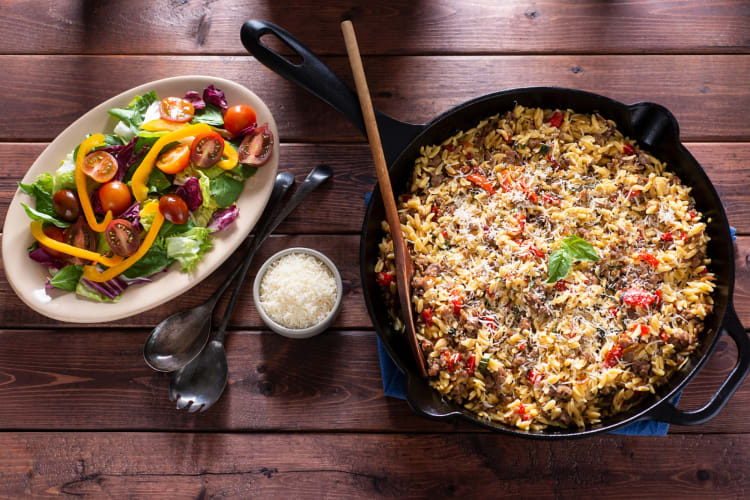
Is Orzo Healthier Than Rice?
Is orzo healthier than rice? That depends on what type of health profile you’re going for. Orzo pasta provides more protein and will keep you feeling full longer than rice. Both are sources of fiber, but brown rice will supply more fiber per serving than orzo. They have similar glycemic index scores (both quite low) if that is a concern.
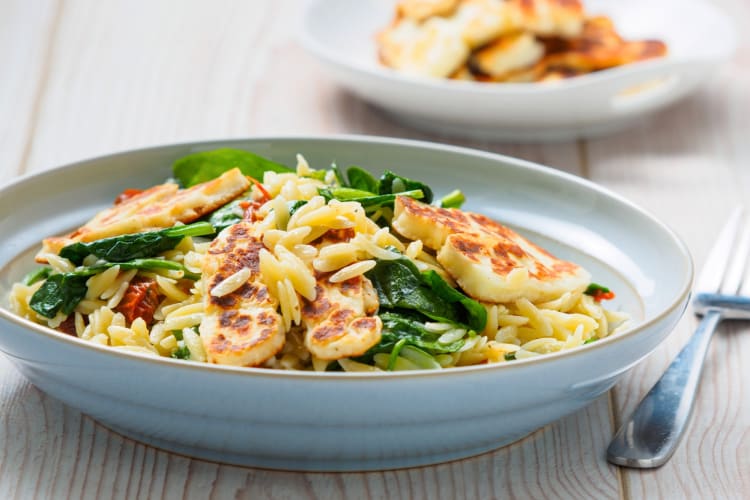
Is Orzo Gluten-Free?
Because orzo is made with flour that comes from grains, it is not gluten-free. You may be able to find a gluten-free version of orzo, but it’s not as easy to find as shapes like gluten-free penne or fusilli.
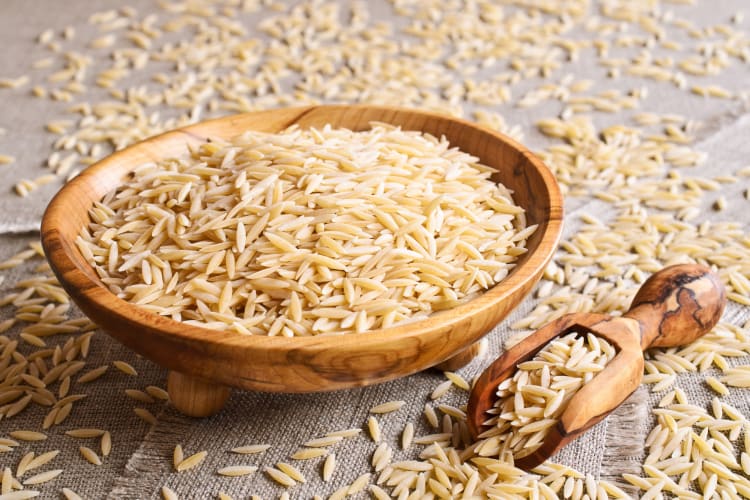
Is Orzo Vegan?
Orzo will generally be vegan (as most dried kinds of pasta are). If you happen to find fresh orzo, it’s more likely to be non-vegan due to the inclusion of eggs in the recipe. Even though most store-bought dried orzo will be vegan, always check the ingredients before purchasing as animal products could be present.
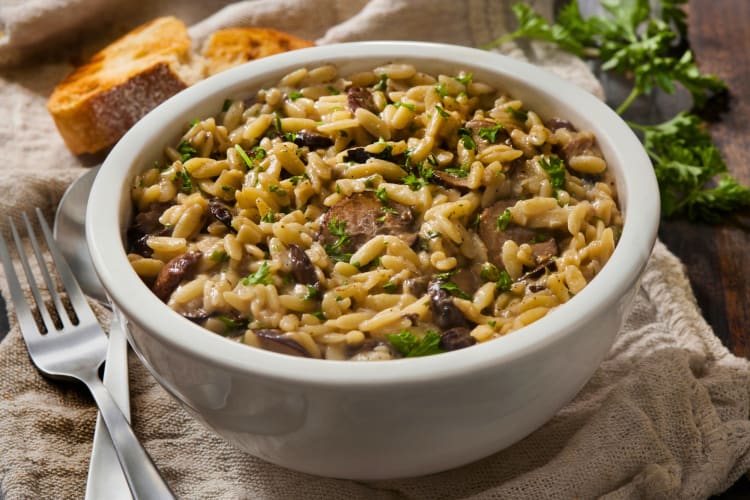
Where To Buy Orzo
Orzo is readily available in supermarkets. You’ll find it with other pastas, though it typically sits on the highest or lowest shelf because it is not as widely known or used.
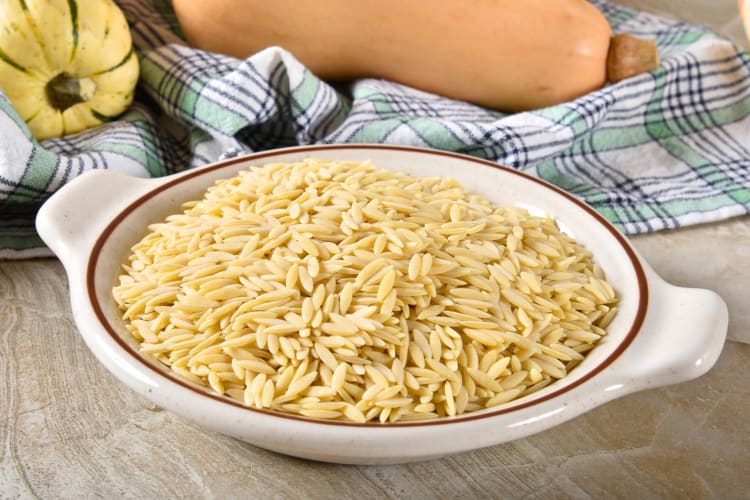
What Is a Good Orzo Substitute?
If you have a recipe that calls for orzo and can’t find it, consider substituting pearled couscous. Pearled couscous (not Moroccan couscous) is also a pasta so you’ll get a similar bite. It comes in a small, round pearl shape, meaning the overall size is also similar to orzo pasta.
There are a few other types of pasta that would make good substitutes for orzo as well. Ditalini would be a good choice, but if you can’t find orzo, you probably won’t find ditalini either. You may also be wondering: “Can you substitute rice for orzo?” In most cases, rice isn’t the best substitute for orzo in recipes. The grainy taste and texture of rice just isn’t a good swap for the al dente bite of pasta.
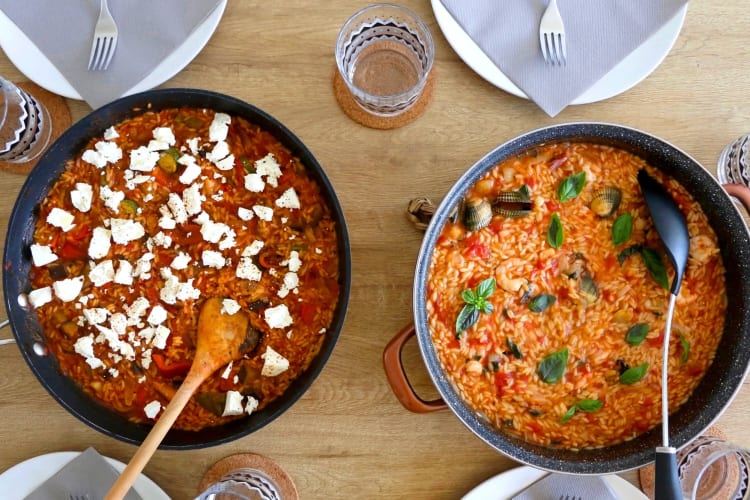
Exploring unique pasta shapes is a good way to add variety to your menu. Some pasta shapes, like orzo, lend themselves to dishes in a way that larger, bulkier kinds of pasta just don’t. The delicate feel of a forkful of orzo is pleasingly light so give it a try when you’re in the mood for pasta but don’t want something overly filling.
For even more ways to explore your favorite foods, check out other experiences happening on Cozymeal.
